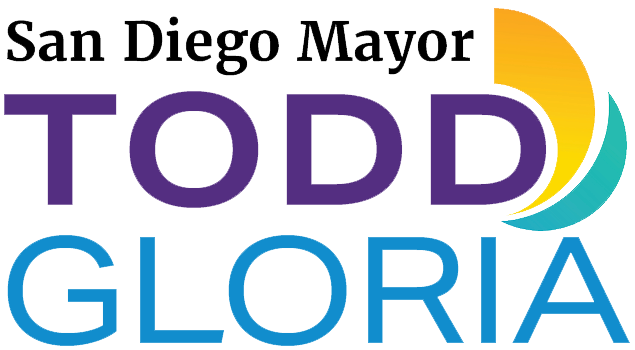Mayor Gloria Secures Council Approval of Build Better SD Initiative to Improve Neighborhoods Faster
PROGRAM CREATES CITYWIDE FUNDS FOR MORE EFFICIENT AND EQUITABLE INFRASTRUCTURE DELIVERY
FOR IMMEDIATE RELEASE
Monday, Aug. 1, 2022
CONTACT:
MayorPress@sandiego.gov
SAN DIEGO Fulfilling a promise to deliver infrastructure improvements faster and more equitably across San Diego, Mayor Todd Gloria today secured City Council approval of his Build Better SD initiative, which does away with outdated, inequitable planning policies that restricted incoming public infrastructure fees to a single community and instead creates a more efficient and sensible citywide funding program.
For the past 40 years, weve used developer fees to pay only for specifically listed infrastructure in the communities where the fees were generated. Once upon a time, that made sense but not anymore. Now, that system only perpetuates historic inequities and leads to millions of desperately needed infrastructure dollars sitting unused. That changes today, Mayor Todd Gloria said. With Build Better SD, well be able to prioritize projects libraries, streets and other public spaces where the need is greatest and get projects across the City completed faster.
Prior to Build Better SD, when private projects were built, the development impact fees (DIFs) property developers pay toward new infrastructure improvements, such as libraries, streets and other public spaces, varied widely across communities based on often decades-old planning documents. Collected fees went into 43 separate neighborhood funds, and these funds could not be shared across neighborhood lines. Many of these individual pots of money were insufficient to finance planned improvement projects, resulting in a current combined total of $222 million in unspent funds funds that are unnecessarily constrained when infrastructure needs are so high across the City.
Build Better SD fixes this by putting future DIFs collected into citywide funds by asset type, which reduces the buckets of money from 43 to just a handful. This will facilitate more frequent updates to fees and projected infrastructure needs in coordination with City Council and community stakeholders. Infrastructure needs will be examined across San Diego and funding would be directed to high-priority projects. Previously collected fees would remain restricted to the neighborhood in which they were collected, but can be topped off with new citywide fee collections to implement projects faster in every part of the city. This funding structure has already been applied to parks through the Mayors Parks for All of Us initiative, which was approved by the City Council in August 2021.
There is no doubt that many communities across our city suffer from outdated policies that enable underinvestment in infrastructure, said City Council President pro Tem Monica Montgomery Steppe, who represents District 4. Im looking forward to the implementation of Build Better SD to address infrastructure gaps in our areas with the greatest needs.
The developer impact fee program was long overdue for an overhaul, as it could no longer deliver infrastructure and resources for maximum impact in our neighborhoods, said Councilmember Joe LaCava, who represents District 1. Build Better SD will be a transparent conversation with our neighborhoods to deliver the infrastructure and city facilities to serve the increase in housing. Build Better SD ensures that we can allocate infrastructure dollars when and where they will have greatest impact, while we continue to protect existing funds in their community lockboxes.
This is a win for our historically underserved neighborhoods and our City as a whole, the Citys planning director, Heidi Vonblum, said. Our communities are in desperate need of infrastructure and rather than collecting money to languish in their individual neighborhood funds, these new policies focus on delivering these investments to our communities more efficiently, quickly and equitably.
To ensure Build Better SD is implemented appropriately, the adoption includes new policies in the Citys General Plan to prioritize investments in areas with the greatest needs, including where the most growth is occurring, and create more opportunities to gather community input on the types of infrastructure projects our residents most want and need.
The Municipal Code is also amended to reflect these new policies. Further, the City will work with the San Diego Association of Governments (SANDAG) to improve the Regional Transportation Congestion Improvement Program to align with the Citys vision to create neighborhoods where residents can walk, bike or use public transit.
###


